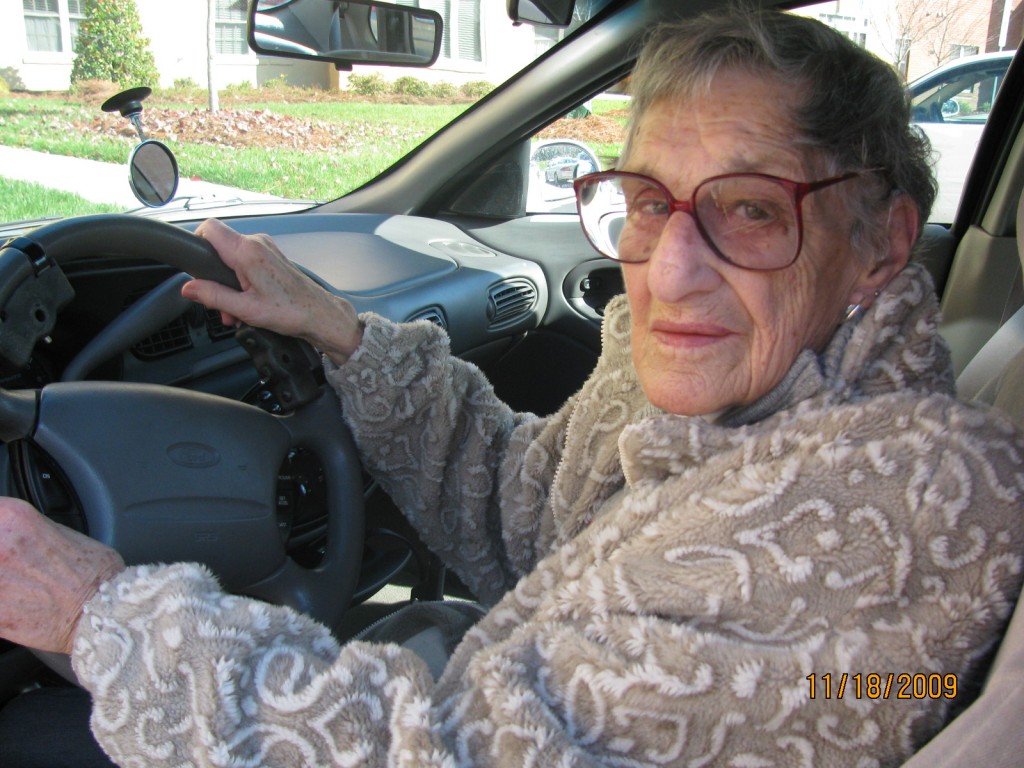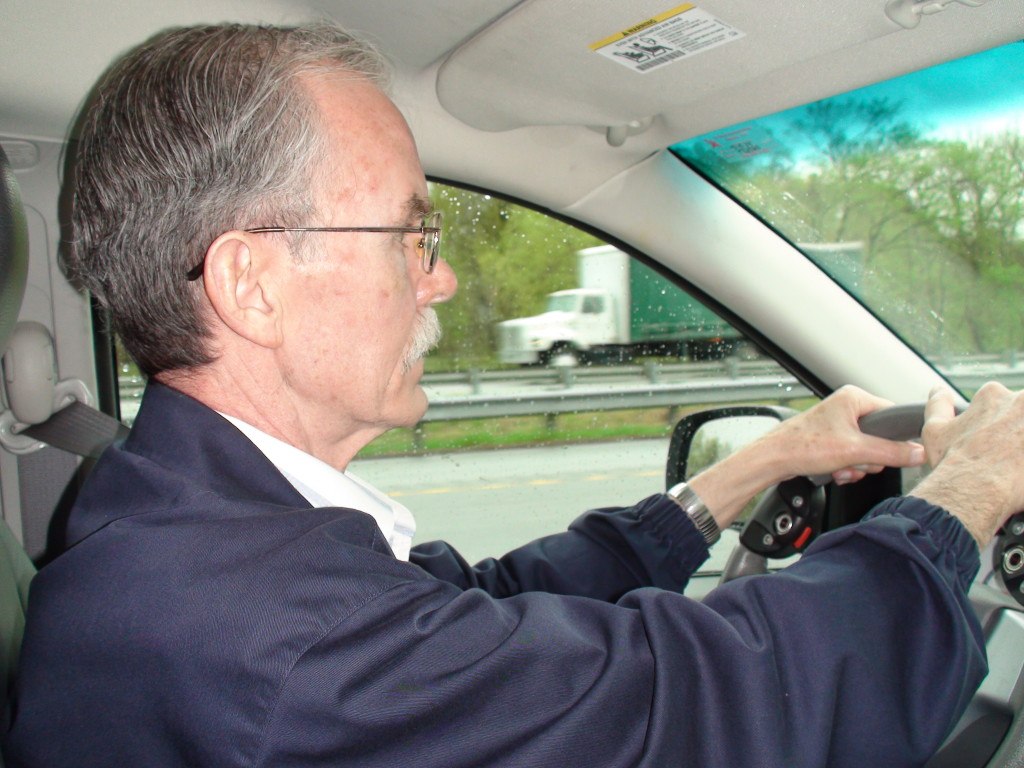 Driver Rehabilitation Services provides comprehensive evaluations for aging drivers. Assessments always include both clinical and behind the wheel testing. Evaluations are conducted by a licensed Occupational Therapist/Certified Driver Rehabilitation Specialist with 20 years of experience in the field of Driver Rehabilitation. Our therapist is a current member in the North Carolina Senior Driver Safety Coalition, Older Driver Work Group.
Driver Rehabilitation Services provides comprehensive evaluations for aging drivers. Assessments always include both clinical and behind the wheel testing. Evaluations are conducted by a licensed Occupational Therapist/Certified Driver Rehabilitation Specialist with 20 years of experience in the field of Driver Rehabilitation. Our therapist is a current member in the North Carolina Senior Driver Safety Coalition, Older Driver Work Group.Aging Drivers seeking expert guidance can benefit from a Comprehensive Driver Evaluation that includes both Clinical and Behind the Wheel assessments.
Aging Drivers may experience changes in their physical skills, visual processing, behavior, or cognitive abilities that can impact driving. Because driving affects an individual’s safety and the safety of other roadway users, it is particularly important to receive expert guidance regarding driving safety as an aging driver’s functional skills change.
Occupational therapists who specialize in driver evaluations are trained to assess physical, visual, and mental abilities required for safe driving. Occupational therapists are health care specialists who have the knowledge needed to recognize changes associated with medical conditions and to tailor evaluation and intervention plans to each individual.
Clinical testing is helpful to identify potential deficit areas. Many clinical tests have research that relates to driver safety. However, clinical testing alone is limited in predicting driver ability. For example, an individual who tests with clinical impairment(s) may be told to cease driving without actually driving a vehicle to determine if deficit areas impact safety. Some deficits can be overcome with compensatory strategies or adaptive equipment.
Behind the wheel testing correlates clinical testing with functional performance. Programs offering behind the wheel assessment without first completing clinical evaluations are usually staffed with driving instructors who are not medically trained to detect medical, visual or cognitive challenges that impact perception, judgment and decision making behind the wheel. This type of behind the wheel testing typically looks at an individuals’ ability to physically operate and control a vehicle. Driving performance may not be assessed with regard to a client’s health challenges and possible progressiveness of an impairment, functional status, or decision making for driving maneuvers or route navigation.

Click on the links below for further information.
Reasons to participate in a Driver EvaluationAlzheimer’s/Dementia and Driving
Driving Post Stroke
Resources for Aging Drivers
Driving Safety Guides from The Hartford Center for Mature Market ExcellenceAAA Senior Driver Self Rating Tool
How Medications Can Affect Driving
Help Guide Older Driver Safety
American Occupational Therapy Association Driving and Community Mobility
Center for Disease Control Older Driver Article
AARP Driver Safety Programs

Driver Rehabilitation Services provides comprehensive evaluations for aging drivers. Assessments always include both clinical and behind the wheel testing. Evaluations are conducted by a licensed Occupational Therapist/Certified Driver Rehabilitation Specialist with 20 years of experience in the field of Driver Rehabilitation. Our therapist is a current member in the North Carolina Senior Driver Safety Coalition, Older Driver Work Group.
Aging Drivers seeking expert guidance can benefit from a Comprehensive Driver Evaluation that includes both Clinical and Behind the Wheel assessments.
Aging Drivers may experience changes in their physical skills, visual processing, behavior, or cognitive abilities that can impact driving. Because driving affects an individual’s safety and the safety of other roadway users, it is particularly important to receive expert guidance regarding driving safety as an aging driver’s functional skills change.
Occupational therapists who specialize in driver evaluations are trained to assess physical, visual, and mental abilities required for safe driving. Occupational therapists are health care specialists who have the knowledge needed to recognize changes associated with medical conditions and to tailor evaluation and intervention plans to each individual.
Clinical testing is helpful to identify potential deficit areas. Many clinical tests have research that relates to driver safety. However, clinical testing alone is limited in predicting driver ability. For example, an individual who tests with clinical impairment(s) may be told to cease driving without actually driving a vehicle to determine if deficit areas impact safety. Some deficits can be overcome with compensatory strategies or adaptive equipment.
Behind the wheel testing correlates clinical testing with functional performance. Programs offering behind the wheel assessment without first completing clinical evaluations are usually staffed with driving instructors who are not medically trained to detect medical, visual or cognitive challenges that impact perception, judgment and decision making behind the wheel. This type of behind the wheel testing typically looks at an individuals’ ability to physically operate and control a vehicle. Driving performance may not be assessed with regard to a client’s health challenges and possible progressiveness of an impairment, functional status, or decision making for driving maneuvers or route navigation.

Click on the links below for further information.
Reasons to participate in a Driver EvaluationAlzheimer’s/Dementia and Driving
Driving Post Stroke
Resources for Aging Drivers
Driving Safety Guides from The Hartford Center for Mature Market ExcellenceAAA Senior Driver Self Rating Tool
How Medications Can Affect Driving
Help Guide Older Driver Safety
American Occupational Therapy Association Driving and Community Mobility
Center for Disease Control Older Driver Article
AARP Driver Safety Programs

